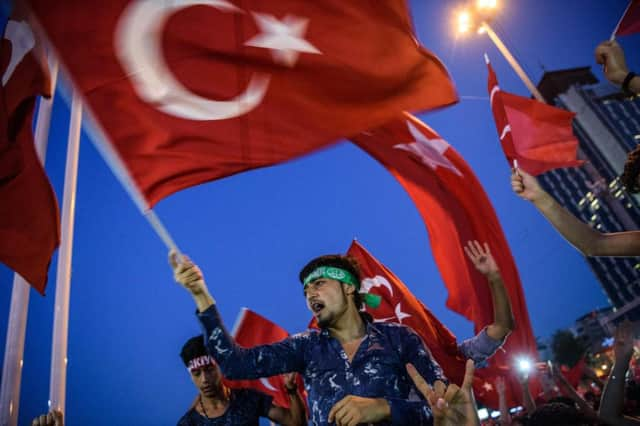Leader comment: Turkey's coup raises concerns for west


News of a failed coup attempt in a Nato member country bordering the European Union would surely merit loud expressions of relief. Relief there certainly must be that the death toll – which hit 290 late yesterday – might now stop rising. But with almost every hour searching questions have arisen both over the nature of this coup attempt and what the resulting arrests of 6,000 people, including senior army commanders and a reported 3,000 judges, now means for the country and for geo-political stability across the region.
Whether Turkey can now be considered a functioning democratic state must now be open to question in the wake of a remarkably swift and sweeping series of arrests of government critics. Not only have few dissenting voices been spared but also the imagery used by the country’s President, Recep Tayyip Erdogan to describe them suggest a retaliation altogether better organised – and more vicious – than the coup attempt itself. Mr Erdogan has wasted no time. “We will,” he declared yesterday, “continue to cleanse the virus from all state institutions, because this virus has spread. Unfortunately like a cancer, this virus has enveloped the state.”
Advertisement
Hide AdAdvertisement
Hide AdSuch language, combined with the seizure and arrest of so many members of the country’s judiciary, suggest that President Erdogan is making full use of the opportunity to move against anyone he considers an enemy.
He has also made full use of the opportunity to accuse the US-based Turkish cleric Fethullah Gulen of being behind the plot and demanding his extradition. No evidence has yet been furnished to support this demand and Mr Gulen strongly denies any involvement. But the attempted coup, as mystifying in its origins as in its failure to succeed despite notable army personnel and air power support, has been swiftly seized upon to buttress Mr Erdogan’s position and to provide the pretext for further measures to tighten his already extensive grip on power.
Among the arrests was the commander of Incirlik air base in the south, used by US-led coalition jets for raids against Islamic State in Iraq and Syria. It is said he and 10 other soldiers had been detained for their role in the coup. Yesterday more than 50 senior soldiers were detained in the western province of Denizli. Those arrested on Saturday were reported to include the commander of the Third Army, the commander of the Second Army and the former Chief of Air Staff.
One of the country’s most senior judges, Alparslan Altan, was among thousands of senior legal personnel taken into custody. Quite how Turkey can comply with US President Obama’s stricture to remain within the rule of law is moot.
All this has created problems for western powers dependent on Turkey’s co-operation both in military actions against IS strongholds, and in curbing the flow of migrants into the EU. The country is also a putative EU member. Indeed, it is widely thought that in order to secure Turkey’s continuing co-operation in migrant control its application for EU membership has proceeded this far.